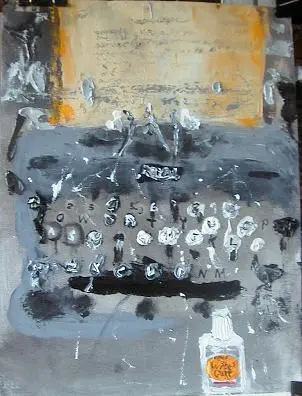Pushing back the schedule/ I so know Donoso
- At the request of Mr. Kamensky, we’re pushing back our reading schedule a bit more than a half-week. (I have a commitment on Sunday August 19th so I can’t push it back a full week.) The new reading/comment target dates are:
Thursday July 26: Chs. 1-7 ( –> p.93)
Thursday August 2: Chs. 8-16 ( –> 217)
Thursday August 9: Chs. 17-23 ( –> 329)
Thursday August 16: finish
My apologies to Mr. Malbin, who will certainly be running ahead of us for the first deadline.
(I take much of this from Donoso’s classic tell-all memoir, Historia personal del Boom (1972))
*He comes from a rich family that sent him to private school in Chile (where one of his classmates was the Mexican diplomat’s son, Carlos Fuentes) and eventually Princeton.
*Despite (because of?) Chile’s reputation as a “land of poets” (Pablo Neruda and Gabriela Mistral most prominently), Donoso knew as a young man not only that he wanted to be a man of letters, he wanted to be a novelist.
*FWIW, Donoso is the only (closeted) gay writer of the very heterosexual, very male Boom; the next “generation” of well-known Latin American writers includes Manuel Puig, Reinaldo Arenas, and many women writers, but Donoso was only outed posthumously; early on he married a woman, a painter, of his own social class, and they adopted a daughter. I haven’t read the daughter’s 2010 memoir yet, but I gather it’s pretty brutal towards them; she committed suicide a year after publishing it.
*The Chilean novel in Donoso’s youth was about social realism. That was sort of fine with him, until he realized that the great modernists –Joyce, Woolf, Gide– were suspicious of social realism. Nevertheless, his novels and stories of the ’50s were roughly realistic. He thought Latin American literature couldn’t support non-realistic fiction…
*…until he went to Argentina in the late ’50s and discovered Borges; he also realized that Latin American readers and writers were beginning to read and write outside their national boundaries…
*, a trend that hit its full flowering with the success of the Cuban Revolution, which energizes all the continent’s young leftist intellectuals –like his friend Carlos Fuentes!, who takes Donoso and his wife under his wing in 1964, and brings them to Mexico, where he is flummoxed by Fuentes’s uncomplicated prolificacy (is that a word?), whereas Donoso is sinking into a panicky writer’s block. (The idea for The Obscene Bird of Night first came to Donoso in 1959; he didn’t finish it until 1970.)
* Donoso pulls himself out of the writer’s block a little when he writes and publishes two short novels, one of them a short novel about a transgender prostitute in a brothel in rural Chile. Hell Has No Limits (1966) is the kind of great book I can teach all the time, and it features in one of the chapters of my book, in which I shoehorn three little novels by Donoso, the Cuban Severo Sarduy, and Carlos Fuentes, all about transgender types, into one noisy argument. (Sarduy, who was openly gay as soon as he made it to exile in Paris in 1963, also wrote an essay about Hell Has No Limits, where he Gets Everything All Wrong, But In An Interesting Way; meanwhile, while Donoso was writing his little novel in a borrowed apartment in the back of Carlos Fuentes’s estate, Fuentes himself was letting a film crew use his house to film an adaptation of a story that he wrote; the main actor of the movie was the son of Mexico’s most famous actress, María Félix, and after befriending him Fuentes wrote a novella, Holy Place, about an actor who was the son of a famous Mexican actress who deals with his mommy issues by dressing up like her. Latin American literature in the ’60s is a moral cloaca, I tell you! But I digress.)
*Donoso continues to have trouble finishing The Obscene Bird of Night. It makes him physically sick. He ends up in a hospital (I think while he’s in Iowa at the International Writer’s Program, where he would end up teaching for many years in the ’90s), and while they’re treating him for an ulcer he completes the rest of the novel in 1970 high on morphine. That’s his story, anyway, and he’s sticking to it.
*The novel is a succès d’estime, although not as much esteem as he’d like; meanwhile, first the great friendships of the Boom fall apart (unsurprisingly, over Cuba), and then Pinochet takes over Chile in 1973; Donoso hasn’t lived in Chile for years, but of course it’s almost as devastating anyway. Over the next fifteen years he’s got at least four great novels, of very different kinds, still in him (one an extravagantly Baroque allegory about Chile under dictatorship; one a weepy seemingly-realist novel about an exiled Chilean novelist in Spain; one a camp erotic novel about a Spanish princess; and one about the guilty decision to return to Chile even though Pinochet is still in power thirteen years after the coup); there are a few less-well-regarded novels in the last decade of his life. But it’s agreed that The Obscene Bird of Night is his most ambitious and most successful book. ¡Adelante!
1 Comment
Sorry, the comment form is closed at this time.

Hi all, it took me a few weeks to get my hands on a hard copy. I just finished book one. Will try to sprint to the finish and respond in a week or two.
Sent from my iPhone
>
Comment by adkriefall | August 16, 2018